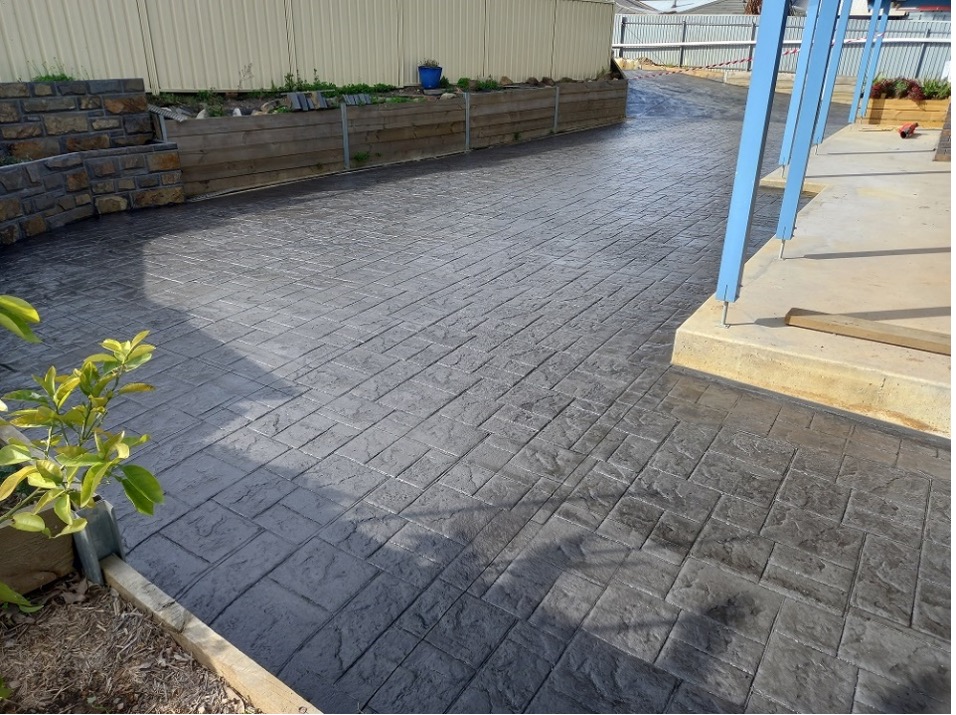Even though concrete driveways have been around for a while, some people still have misconceptions about them. For instance, some people think cement alone constitutes concrete so they can break easily, and out of this fear they don’t choose to install concrete driveways. However, that is untrue. Sand, water, and crushed stone makeup concrete in a semi-liquid form and then dried up. And, when they get dry they become the most hardened thing that you can ever choose for driveways. So, the concrete driveways that we utilize are created using this combination.
Therefore, it is not an exaggeration to state that most people still have a vague understanding of concrete driveways. But don't worry, we've got this. Here’s a list of a few frequently asked questions about concrete driveways that will give a clear idea.
What Are the Different Types of Concrete Driveways?
There are 4 different types of concrete driveways. They are as follows -
#1. Concrete mixed with aggregates
People looking for a beautiful visually appealing driveway may opt for this style. In this style, one or more pieces of regular or multicolored gravel are combined with concrete. In contrast to standard grey concrete, this provides texture.
#2. Permeable plastic pavers
This style of concrete driveway provides a contemporary appearance. The driveways of this kind can be filled with a variety of concrete materials. When compared to other types of concrete, this type is more durable. Additionally, they require little upkeep, making them quite desirable.
#3. Stencil designed concrete
This type is minimalistic yet stylish. In this style, a nearly dry concrete driveway is constructed with the aid of stencils. The most commonly used designs include slate tiles, brick pavers, and stone pavers.
#4. Slate style concrete
Stencil-designed concrete is another variation. Once the concrete is almost dry, it is stamped with a slate stencil. This is one of the most preferred types due to its classy appearance.
What is the Difference Between Concrete Driveways and Asphalt Driveways? And Which One Is Better?
The key difference between concrete and asphalt is that the former is durable. Also, when exposed to weather conditions concrete is sturdier since asphalt can be easily eroded by water. Furthermore, concrete roads do not get damaged by oil leaks from vehicles.
There are also some advantages of asphalt roads over concrete roads such as concrete roads requiring more time for construction. Also, during the rainy season concrete driveways can get slippery. However, in the long run, concrete driveways show better performance. So, you must consider installing a concrete driveway instead of an asphalt driveway.
Are Concrete Driveways Durable and Do They Have a Warranty?
Yes, concrete driveways are durable and have a lifespan of 25-30 years. Also, they require little to zero maintenance, hence one can rely on concrete driveways for durability. In addition, many contractors will give you a warranty for their work. Furthermore, you can buy an extended warranty.
What is the Installation Process for The Concrete Driveways?
- Your contractor will start by drawing out a digital blueprint of your driveway.
- All your specifications, including shape and size, will be taken into account.
- Once these are done, you must request approval from your neighborhood corporation. Your installation can start as soon as you have the permit.
- The first of the installation process involves leveling the area. All the weeds and grasses will be removed from your area.
- The driveway's perimeter will then have wooden frameworks constructed.
- The next step involves pouring concrete.
- After that, you must wait until the concrete has dried. The length of the curing process might range from one to two weeks, depending on the weather.
After the complete installation, your concrete driveway is ready to use.
What Are Some Maintenance Tips to Ensure the Longevity of The Concrete Driveways?
- Keep the concrete driveway clean on the regular basis. It needs a simple maintenance process such as using a broom to clean all the dust and dirt, and water to wash them away.
- Residential driveways are strong, but not strong enough to support heavy vehicles. Ensure that you do not park heavy vehicles in the residential driveways.
- The use of harsh chemicals should be strictly avoided as this can cause wear and tear on the concrete that can result in cracks or even breaking in some cases.
Conclusion:
These are some of the most frequently asked questions about concrete driveways. Hopefully, this article has answered your questions and provided some useful insight. Be sure to seek professional advice to gain more knowledge about this topic.




